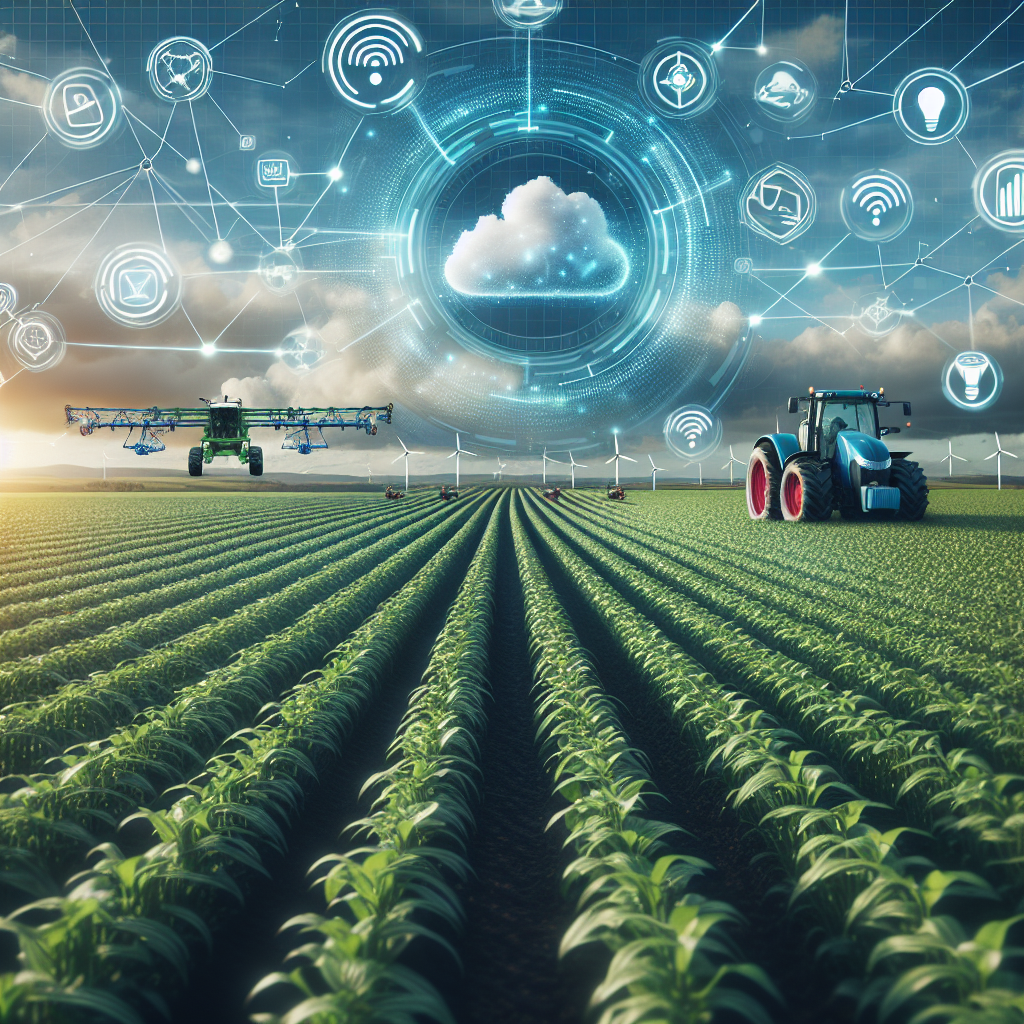In recent years, there has been a growing interest in using artificial intelligence (AI) solutions for precision agriculture. This technology has the potential to revolutionize the way we approach farming by enabling farmers to make more informed decisions based on real-time data. From predictive analytics to autonomous machines, AI is transforming the agricultural industry and improving efficiency, productivity, and sustainability.
One of the key benefits of AI in precision agriculture is its ability to collect and analyze vast amounts of data from various sources, such as sensors, drones, and satellite imagery. This data can provide valuable insights into crop health, soil quality, weather patterns, and other factors that can impact farming operations. By harnessing the power of AI, farmers can optimize their resources, reduce waste, and increase yields.
AI solutions for precision agriculture come in many forms, including:
1. Predictive analytics: AI algorithms can analyze historical data and predict future trends, such as crop yields, pest outbreaks, and weather patterns. This information can help farmers make more informed decisions about when to plant, irrigate, and harvest their crops.
2. Autonomous machines: AI-powered robots and drones can perform tasks such as planting, spraying pesticides, and monitoring crops autonomously. These machines can work around the clock and cover large areas quickly and efficiently, reducing the need for manual labor and increasing productivity.
3. Crop monitoring: AI algorithms can analyze images captured by drones and satellites to monitor crop health, detect pests and diseases, and assess soil conditions. This real-time data can help farmers identify issues early and take corrective action before they escalate.
4. Precision irrigation: AI can optimize irrigation systems by analyzing soil moisture levels, weather forecasts, and crop water requirements. By delivering the right amount of water to each plant at the right time, farmers can reduce water waste and improve crop yields.
5. Supply chain optimization: AI can help farmers streamline their supply chains by predicting demand, optimizing logistics, and managing inventory more efficiently. This can help reduce costs, improve delivery times, and enhance customer satisfaction.
Overall, AI solutions for precision agriculture have the potential to revolutionize the way we grow food, making farming more sustainable, efficient, and profitable. By leveraging the power of AI, farmers can overcome challenges such as climate change, resource scarcity, and labor shortages, and ensure a more secure and resilient food supply for future generations.
FAQs:
Q: What are the main challenges in implementing AI solutions for precision agriculture?
A: One of the main challenges is the cost of implementing AI technology, which can be prohibitive for small-scale farmers. Additionally, there may be resistance to adopting new technologies and changing traditional farming practices. Finally, there are concerns about data privacy and security, as AI systems collect and analyze sensitive information about farm operations.
Q: How can farmers benefit from using AI in precision agriculture?
A: AI can help farmers increase productivity, reduce costs, and improve sustainability by providing real-time data and insights that can optimize farming operations. By using AI-powered tools for crop monitoring, predictive analytics, and autonomous machines, farmers can make more informed decisions and achieve higher yields with less resources.
Q: Are there any risks associated with using AI in agriculture?
A: While AI has the potential to revolutionize agriculture, there are some risks to consider, such as reliance on technology, data privacy concerns, and job displacement. Farmers should carefully evaluate the benefits and risks of using AI solutions and implement appropriate safeguards to protect their operations and data.
In conclusion, AI solutions for precision agriculture have the potential to transform the way we grow food, making farming more efficient, sustainable, and profitable. By harnessing the power of AI, farmers can optimize their resources, reduce waste, and increase yields, ensuring a more secure and resilient food supply for future generations.

